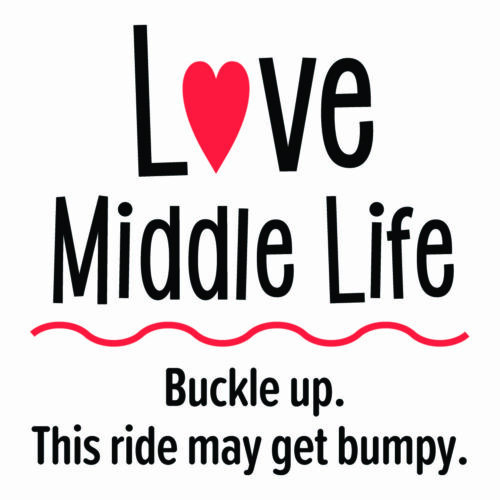Life is a Journey
Life is a journey filled with expected milestones and transitions. We anticipate certain events to unfold in a particular sequence: children grow up, parents age, and eventually, the older generation passes away before the younger. However, when this natural order is disrupted, the resulting grief can be profoundly disorienting and deeply painful. This phenomenon, known as “out-of-order death,” challenges our understanding of life and loss.
Personal Reflections on Out-of-Order Death
I recently lost my brother to cancer at the age of 58, just five days ago. He leaves behind a wife, three married children, and a seventh grandchild on the way. This loss is compounded by the approaching fourth anniversary of my son Mitch’s death due to an accidental fentanyl poisoning from opioid addiction. My parents are still alive, and even though my brother was pushing 60, his death feels out of order.
Out-of-order deaths can leave us grappling with a sense of injustice and confusion. The death of a sibling or a child feels particularly unnatural because it defies the chronological order we expect. This can lead to a unique form of grief that is often compounded by feelings of shock, anger, and profound sadness.
The Unique Challenges of Out-of-Order Deaths
- Shock and Disbelief: The suddenness of an out-of-order death can leave families in a state of shock. This is especially true when the deceased was relatively young or in the prime of their life. The unexpected nature of such a loss can make it difficult to process and accept.
- Complex Grief: Grieving an out-of-order death often involves a more complicated emotional journey. There may be feelings of guilt, anger, and a deep sense of unfairness. For parents who lose a child, the grief can be particularly intense and long-lasting.
- Impact on Family Dynamics: The death of a sibling or child can significantly alter family dynamics. Surviving family members may struggle with their roles and relationships, and the loss can create a ripple effect of emotional and practical challenges.
- Cultural and Social Expectations: Society often has set expectations for how and when people should die. When these expectations are not met, it can lead to a lack of understanding and support from others, making the grieving process even more isolating.
Coping with Out-of-Order Deaths
- Seek Support: It’s crucial to reach out for support from friends, family, and professional counselors. Grief support groups, both in-person and online, can provide a sense of community and understanding.
- Allow Yourself to Grieve: Give yourself permission to feel and express your emotions. Grief is a personal journey, and there is no right or wrong way to experience it.
- Create Rituals and Memorials: Honoring the memory of your loved one through rituals and memorials can provide comfort and a sense of connection. This could be through a special ceremony, creating a memory book, or establishing a charitable fund in their name.
- Educate Yourself: Understanding the nature of out-of-order deaths and the grieving process can help you navigate your emotions. Books, articles, and online resources can provide valuable insights and coping strategies.
- Take Care of Yourself: Grief can take a toll on your physical and mental health. Ensure you are eating well, getting enough rest, and engaging in activities that bring you comfort and peace.
Mitch’s Story: The Unique Pain of Losing an Adult Child to Addiction
Losing my son Mitch to an accidental fentanyl poisoning was a devastating blow. Mitch struggled with addiction for about eight years, starting at age 18 until his death at 25. The journey was fraught with challenges, and as parents, we found ourselves in an impossible situation. The usual maternal and paternal instincts no longer applied, and we discovered just how out of control we were.
The stigma surrounding mental health issues and addiction added an extra layer of pain. Society often views addiction through a lens of judgment rather than compassion, making it difficult to find the support and understanding we needed. Mitch’s struggle was not just a battle against addiction but also against the societal perceptions that often accompany it.
My Brother’s Story: A Journey Through Terminal Cancer
The loss of my brother to cancer was another profound shock. He was healthy, and it was such a surprise to learn he had Stage IV cancer just a year ago. His fight and resilience were nothing short of unbelievable. Despite the grim prognosis, he faced his illness with courage and determination, inspiring everyone around him.
The legacy of love he left behind was demonstrated by the hundreds of people who came to pay their respects at his celebration of life. His love will live on through his children, grandchildren, and the countless lives he touched. His story is a testament to the enduring power of love and the impact one person can have on so many.
Resources for Grieving Out-of-Order Deaths
- GriefShare: A network of grief recovery support groups that offer help and encouragement after the death of a loved one. GriefShare
- The Compassionate Friends: An organization that provides support to families after the death of a child. The Compassionate Friends
- What’s Your Grief: A website offering articles, podcasts, and online courses on various aspects of grief. What’s Your Grief
- Center for Loss & Life Transition: Founded by Dr. Alan Wolfelt, this center offers resources and training for those dealing with grief. Center for Loss & Life Transition
- Books:
You Are Not Alone!
Out-of-order deaths challenge our understanding of life and loss, leaving us to navigate a complex and often isolating grief journey. By seeking support, allowing ourselves to grieve, and finding ways to honor our loved ones, we can begin to heal and find a path forward. Remember, you are not alone in this journey, and there are resources and communities ready to support you through your grief.
Resilience in the face of such profound loss is a testament to strength and love. May we find peace and comfort in the memories of our loved ones and the support of those around us.

